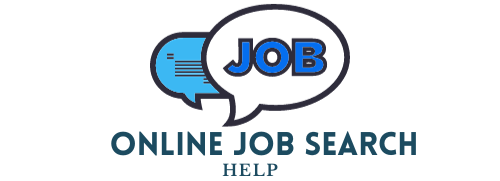How To Prepare For Third Interview Questions?
You’ve made it to the final round of interviews- congratulations! This is undoubtedly an exciting time, but it can also be nerve-wracking. You want to make sure that you are prepared for any questions that your interviewer might throw your way.
In this blog post, we will discuss how to prepare for third interview questions. We will provide tips and advice on how to stand out from the competition and land the job of your dreams!
Table of Contents
Why Do Companies Have Third Interviews?
The main reason companies have third interviews is to assess whether the candidate is a good fit for the company culture. The interviewer will ask questions about your work style, how you handle stress, and how you interact with others. They may also give you a tour of the office and introduce you to some of the employees.
Third interviews can be nerve-wracking, but if you prepare properly, you will be able to ace the interview and get the job. Below are some tips on how to prepare for third interview questions.
Tips To Prepare For A Third Interview
The third interview is usually the most important interview in the hiring process. This is your chance to show the company that you are the best candidate for the job. Here are some tips on how to prepare for your third interview:
Review Notes Or Recall Information From Your Previous Interviews
This will help refresh your memory on what the interviewer asked you in the previous interviews. It will also give you an idea of what topics have already been covered. For this purpose, it is helpful to keep a notebook or folder dedicated to your job search. This way, you can have all of your interview notes in one place.
Think about why you want the job: Be prepared to answer this question in a way that is both convincing and enthusiastic. Remember, the interviewer wants to know that you are genuinely interested in the job and not just looking for any opportunity.
Do Your Research
You should have a good understanding of the company’s culture, values, and mission. Be prepared to discuss how your skills and experience align with the company’s needs. You should also be familiar with the company’s products and services.
Prepare Responses To Behavioral Questions
It is important to be prepared for behavioral questions in a third interview. Behavioral questions are designed to measure how you have behaved in the past, as opposed to your skills or abilities.
The best way to prepare for these types of questions is to come up with specific examples from your professional and academic experiences. If you can provide specific examples that illustrate how you have handled different situations, you will be more likely to impress the interviewers.
Some behavioral questions you may be asked include:
– Can you describe a time when you had to deal with a difficult customer?
– Can you think of an instance when you had to go above and beyond your job duties?
– What is your experience with managing teams or projects?
– Can you tell me about a time when you had to make a difficult decision?
When answering behavioral questions, it is important to remain calm and collected. Do not get defensive or try to sugarcoat any of your answers. Stay positive and focus on the examples that best showcase your skills and abilities. By preparing ahead of time, you can increase your chances of impressing the interviewers and landing the job.
Another interesting read: How To Find Work From Home Jobs
Dress Appropriately:
The way you dress communicates a lot about you and can create a lasting impression. Depending on the company culture, you’ll want to dress somewhere between business casual and formal business attire. It’s always better to be overdressed than underdressed.
Research Your Interviewers
This is important regardless of whether it’s your first, second, or third interview. You want to be able to put a face to the name (or names) and know a little bit about each person who will be interviewing you. This way, you can tailor your responses to their specific questions and interests. The internet makes it easier than ever to do a little reconnaissance work on potential interviewers.
Another interesting read: 10 Early Morning Jobs That Pay Well
Some basic things you might want to know: What is their role at the company? How long have they been with the company? Do they have any specialties or areas of expertise? What are their hobbies or interests? You don’t need to become an expert on your interviewer, but a little bit of research can go a long way in helping you make a good impression.
Prepare Some Questions To Ask Your Interviewers
Questions show that you’re interested in the company and position, and they give you a chance to learn more about what the job entails. Prepare at least three questions to ask during your third interview.
Some possible questions include:
-What are the day-to-day responsibilities of this position?
-What projects will I be working on?
-Who will I be working with most closely?
-What are the next steps in the interviewing process?
-When can I expect to hear back about this position?
Below are some tips in this regard:
Don’t Assume
Don’t assume you know everything about the role just because you’ve interviewed twice already.
You want to come across as interested and engaged, so ask questions that show you are still invested in learning more about the job.
Do your research ahead of time and be prepared to ask follow-up questions based on what you learn.
Dispel Misconceptions
If you have any hesitations or concerns about the role, now is the time to ask about them.
Another interesting read: How To Let Recruiters Know You’re Open To Work On LinkedIn?
Don’t wait until the end of the interview and risk having your concerns dismissed. By asking questions, you can dispel any misconceptions and get a better idea of what the job will actually be like. Be specific.
Generic questions won’t give you the specific information you’re looking for. The more specific your questions are, the more likely you are to get detailed answers. Asking follow-up questions also shows that you were paying attention to what the interviewer said and that you’re engaged in the conversation.
Act Like You Belong In The Job
At this point in the process, you should feel confident about your qualifications and be able to envision yourself in the role.
If you don’t think you’re a good fit for the job, it’s probably best to withdraw from the process now.
On the other hand, if you are confident that this is the job for you, ask questions that show you are already thinking about how you will contribute to the company.
For example:
-What are the company’s plans for expansion?
-How does this position fit into the company’s long-term goals?
-What challenges is the department currently facing?
-How can I be of help in addressing these challenges?
Negotiate Salary
If you are offered the job, this is the time to negotiate salary and benefits. Come prepared with information about what the average salary is for this position in the current market.
Be ready to discuss your desired salary, vacation time, flexible hours, etc. If you have any questions or concerns about the offer, now is the time to bring them up.
By asking questions and being prepared with information, you can be sure that you are getting the best possible offer.
Another interesting read: How Many Candidates Make It To The Final Interview?
Be Confident:
Remember, you are the best candidate for the job! Walk into the interview with confidence and show the interviewer why you are the best person for the position.
By following these tips, you will be sure to impress your interviewer and land the job of your dreams!
How To Prepare For Third Interview Questions?
Now that you know the basics of how to prepare for your third interview, let’s dive into some specific questions that you might be asked.
What Are Your Weaknesses?
This is a common question that is asked in interviews. It can be difficult to answer this question, but it is important to be honest. You should try to focus on your weaknesses that are not related to the job that you are interviewing for.
For example, if you are interviewing for a position in marketing, you might mention that you are not very good at public speaking.
What Is Your Greatest Achievement?
This question allows the interviewer to get to know you better. It is important to share an achievement that is relevant to the job that you are interviewing for. For example, if you are interviewing for a position in sales, you might mention that you successfully closed a large deal.
Why Are You Interested In This Position?
This question allows the interviewer to get to know your motivations and why you are interested in the job. It is important to be honest and share your reasons for wanting the job.
Why Did You Leave Your Last Job?
This is another difficult question that can be difficult to answer. You should avoid giving a negative response, such as saying that you left your last job because you hated it. Instead, try to focus on the positive reasons why you left, such as wanting to find a job that is a better fit for your skills.
What Are Your Salary Expectations?
This question is typically asked towards the end of the interview process. It is important to do your research before the interview so that you have an idea of what the position pays. You should also be prepared to negotiate your salary if you are offered the job.
By preparing for these questions, you will be sure to impress your interviewer and land the job of your dreams! Good luck!
Another interesting read: What To Wear To A Minimum Wage Job Interview?







